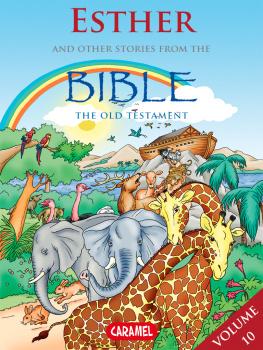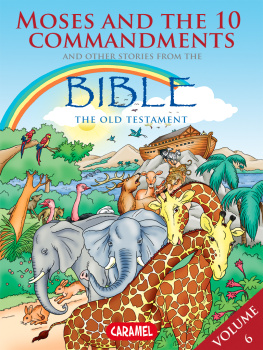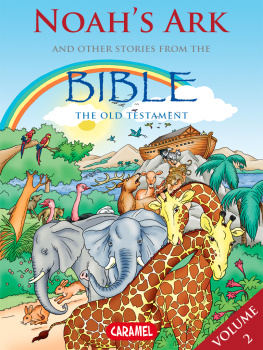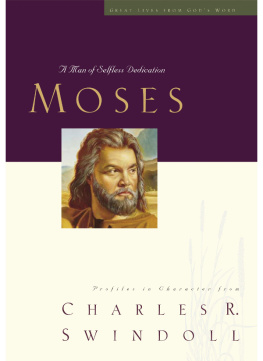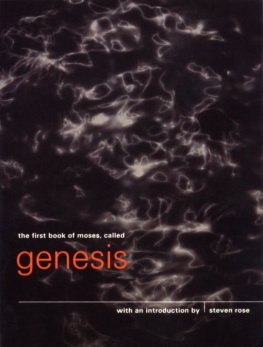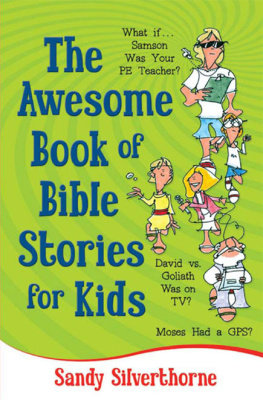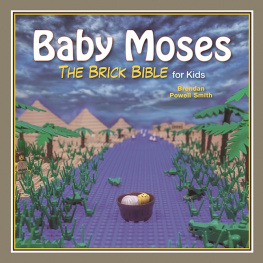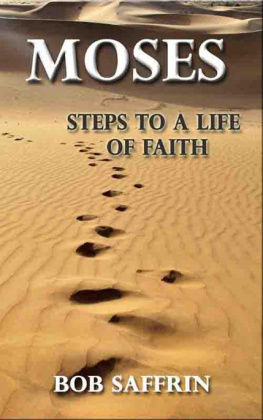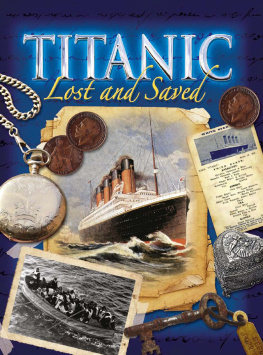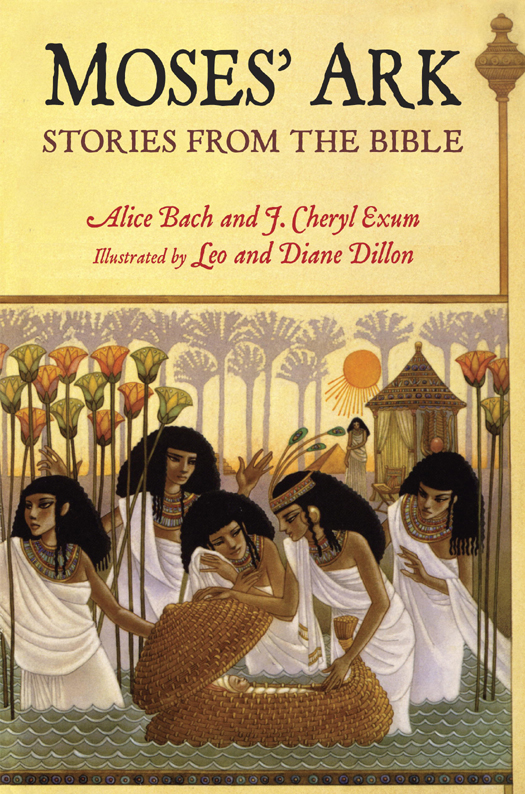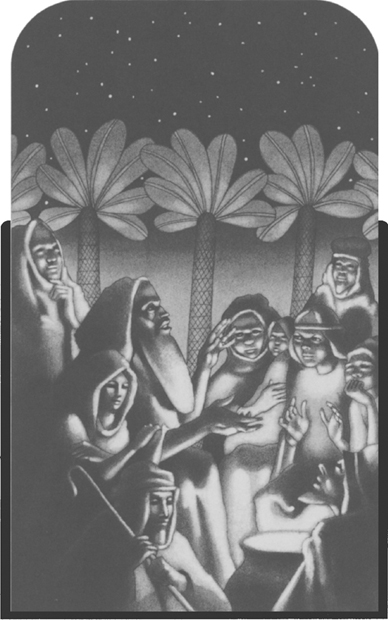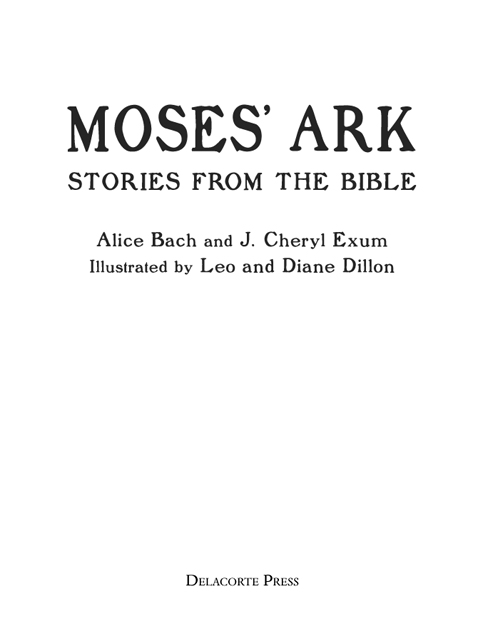We are grateful to Professors Yairah Amit of Tel Aviv University, David J. A. Clines of the University of Sheffield, and Philip J. King of Boston College for their careful readings of our stories and their helpful suggestions. Because they know their right hand from their left, they were able to keep our ark afloat, fill the pharaohs cup with mango juice, and offer two pressings of the finest olive oil.
Text copyright 1989 by Alice Hendricks Bach and J. Cheryl Exum
Jacket art and interior illustrations copyright 1989 by Leo and Diane Dillon
All rights reserved. Published in the United States by Delacorte Press, an imprint of Random House Childrens Books, a division of Random House, Inc., New York. Originally published in hardcover in the United States by Delacorte Press, an imprint of Random House Childrens Books, New York, in 1989.
Delacorte Press is a registered trademark and the colophon is a trademark of Random House, Inc.
Visit us on the Web! randomhouse.com/kids and randomhouse.com/teens
Educators and librarians, for a variety of teaching tools, visit us at RHTeachersLibrarians.com
Library of Congress Cataloging-in-Publication Data
Bach, Alice.
Moses ark : stories from the Bible retold by Alice Bach and J. Cheryl Exum; illustrated by Leo and Diane Dillon.
p. cm.
Summary: A retelling of Bible stories from the familiar tales of Adam and Eve and Noahs ark to lesser-known stories such as Jothams fable and Sauls meeting with the medium at Endor.
ISBN 978-0-385-29778-3 (hc) ISBN 978-0-375-99117-2 (lib. bdg.) ISBN 978-0-449-81654-7 (ebook)
1. Bible stories, EnglishO.T. I. Exum, J. Cheryl. II. Dillon, Leo.
III. Dillon, Diane. IV. Title.
BS551.2.B24 1989
222.09505dc19 89001069
Random House Childrens Books supports the First Amendment and celebrates the right to read.
v3.1
For Rebecca Cockrell Exum,
who taught the pleasures of a good story,
and for Lou and Dorothy Martyn,
who know the stories behind the stories

CONTENTS
Introduction
This collection retells stories from the Bible, ranging from Genesis through Kings. Because the ancient Hebrews told stories in a very different way from modern storytellers, it is not enough to translate their tales into our language. We have tried to capture the spirit of the original stories and to bring out nuances and emphasize details that many translations simplify or miss altogether.
Biblical tradition stresses the importance of the twelve tribes of Israel, whose ancestors are the twelve sons of the patriarch Jacob. Besides twelve sons, Jacob also had one daughter, Dinah. The thirteen stories in this volume are symbolic of the thirteen children of Jacob. Our selection was made with a view toward illustrating the Bibles diversity. Along with the more familiar tales of the garden, the flood, and the exodus plagues, we have included lesser-known stories, such as Sauls encounter with the medium at Endor, Jothams fable, and some of Davids less admirable adventures. We have included a number of stories that portray women as strong figures, among them the defiant women who save the chosen people by saving the infant Moses, the prophet and judge who led the Israelite army to defeat the Canaanites at the river Kishon, and the wise ruler of the land of Sheba.
As far as we know, Moses Ark is the only collection of Bible stories based on the original language, informed by the fruits of contemporary biblical scholarship, and written especially for children. Working from the original Hebrew text, we have highlighted features of the stories available only to readers of the original. A prime example is found in the story of Moses birth. We are all familiar with Noahs ark, but the reader of the Hebrew text knows that Moses, too, has an ark. The Hebrew word tevah used for Noahs ark appears in only one other place in the Bible, referring to the basket Moses mother makes before setting him afloat on the Nile. The allusion, lost in most translations, is extremely important: both arks are vehicles of salvation.
In the same story, the reader of Hebrew recognizes that the Egyptian pharaoh, not one of the Israelites, is the first person to speak of the event that was to become known as the exodus. He is worried that his Hebrew slaves will go up from the land, the phrase that is found throughout the Bible to refer to the Israelites exodus from Egypt.
Many puns are available to the reader of Hebrew. Hebrew adam, an earthling taken from the ground, adamah, becomes the first human being. Samsons name recalls the Hebrew word for sun, and Delilahs is a pun on night. Solomons name is related to the word shalom, meaning peace or contentment, an idea that also appears in the name Jerusalem. In the notes that appear at the end of each story we have pointed out the puns and word plays we think particularly interesting.
There is much humor in these old stories; the ancients knew how to prod a proud prophet like Elijah wishing for God to appear to him in the same spectacular fire and smoke that Moses saw. And they could take great delight in Samsons mischievous pranks at the expense of their hated neighbors, the Philistines. Poking fun at enemies is commonplace in the Bible. The ancient authors certainly were casting a cold eye at the Egyptian pharaoh whose wise solutions to the problem of Hebrew overpopulation are patently ridiculous. We have sought to capture his foolish character in our retelling.
Retelling involves the filling of gaps. We all fill gaps by supplying our own selection of details when we read stories. For example, the biblical storyteller tells us nothing about life aboard Noahs ark during those drenching forty days and nights. Because todays readers may be curious about different things from ancient listeners, we have filled in the sort of details we think will help the stories come alive for our readers. Some details we can add without scholarly support. Surely all those animals made quite a racket as the rain fell endlessly!
Sometimes we have depended on scholarly findings to tell us what we need to know. Archaeology has provided actual examples to show how people lived and worked: we have remains of houses, city defenses, and water systems, as well as cooking utensils, pottery, tools, and weapons. Scholars have written in great detail about the clear parallels to Moses in the portrayal of Elijah, or the fact that, in the garden story, the gender of the first human being is not specified. Some scholars think the tower of Babel was patterned on the Babylonian ziggurat, a pyramid-shaped temple tower. Since looking at maps is frequently helpful for understanding the action, you might want to consult an atlas listed among the works in our bibliography.
When we began to retell the stories, we wondered about details that the text didnt provide. Oddly enough they were details we hadnt missed in many years of reading the stories. One example occurred in the story about King Solomon. The Bible does not go into detail in describing the gifts the queen of Sheba brought to King Solomon. The Hebrew text says simply, She came to Jerusalem with a very large retinue, with camels bearing spices, and very much gold, and precious stones. In order to underscore the opulence of the queen, and to give the modern reader an idea of what the royal riches were in the time of Solomon and the queen of Sheba, we have detailed her gifts of spices (not usually valued by todays royalty), and her jewelry, which would still be greatly prized.


